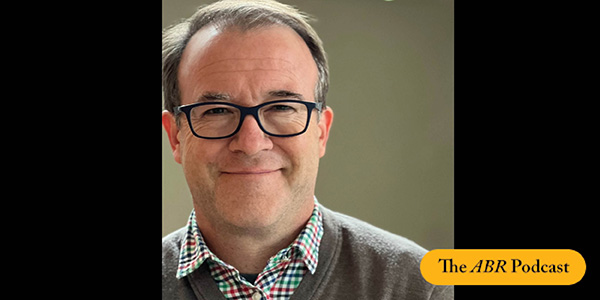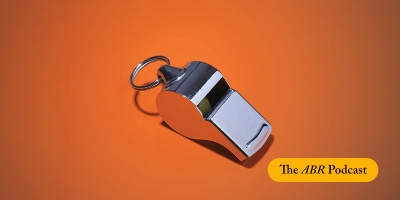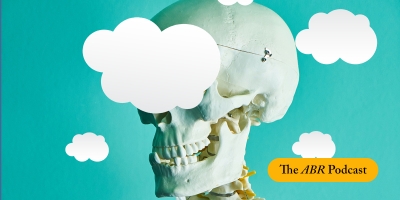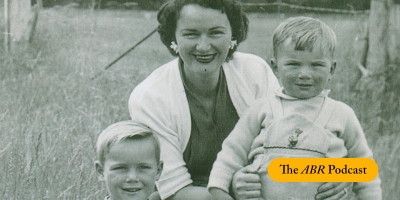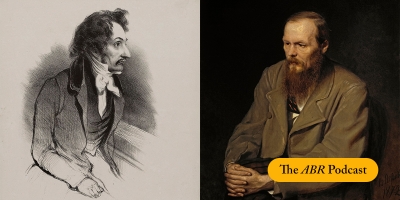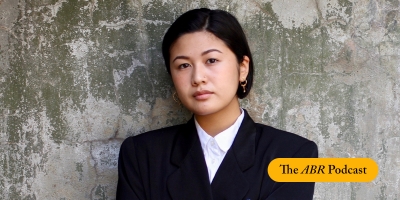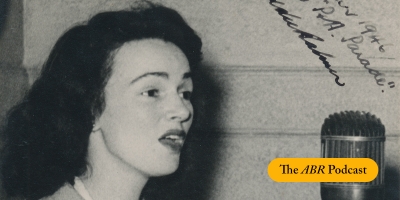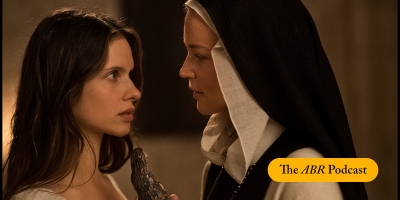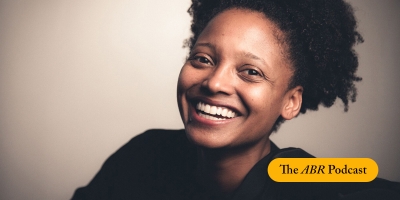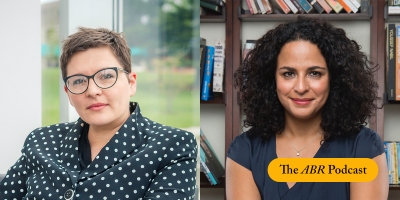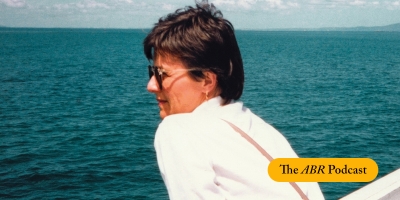Podcast
The ABR Podcast
Released every Thursday, the ABR podcast features our finest reviews, poetry, fiction, interviews, and commentary.
Subscribe via Apple Podcasts, Stitcher, Google, or Spotify, or search for ‘The ABR Podcast’ on your favourite podcast app.
‘Skewering AUKUS: A point-by-point account’
by James Curran
This week, on The ABR Podcast, James Curran reviews Turbulence: Australian foreign policy in the Trump era by Clinton Fernandes. Curran describes Turbulence as ‘an attempt to chart the coordinates of President Trump’s approach to the world’ and to explain how Australia, in ‘scrambling to remain relevant to Washington’, has become what Fernandes describes as a “US sentinel state”.
James Curran is Professor of Modern History at Sydney University and foreign affairs columnist for the Australian Financial Review. His books include Australia's China Odyssey: From euphoria to fear (2022) and he recently delivered a prestigious Boyer lecture, titled ‘Trump’s Gift’. Here is James Curran with ‘Skewering AUKUS: A point-by-point account’, published in the December issue of ABR.
Recent episodes:
In an age of disinformation, whistleblowers such as Julian Assange and Edward Snowden have been accorded the status of folk heroes. And yet, as their respective cases show, no other act of public service is harried as ruthlessly and vindictively by governments whose secrets have been aired. In this episode of The ABR Podcast, listen to Kieran Pender read his cover feature for the April issue, in which he argues for stronger whistleblower protections by examining the case of Bernard Collaery.
... (read more)Few phrases captured the atmosphere of lethargy and disorientation in which many of us lived under lockdown as ‘brain fog’. The term has come to denote a whole range of symptoms – from fatigue and forgetfulness to anxiety and an inability to focus – that serve as an historical marker for our Covid moment. Yet, as literary scholar Thomas H. Ford observes, the malaise is far from unique to the twenty-first century. In this episode of The ABR Podcast, listen to Ford as he traces the history of cognitive fuzziness, revealing the persistent concerns about mental overwork of which ‘brain fog’ is only the latest diagnosis.
... (read more)In this special episode of The ABR Podcast, Peter Rose reads the second and concluding instalment of his 2021 diary, taking us from July to December. These entries continue his chronicle of life under rolling lockdowns – not only for himself, but also for his mother, Elsie, who had moved into aged care earlier that year because of her declining health. Against the arrhythmic schedule of closures and prohibitions, faint tracings of the pre-pandemical world appear: birthday celebrations, an English batting collapse, email trouble, a high five. Written under a cloud of personal and collective uncertainty, these diaries record a son’s observance of his mother’s last days. Elsie Rose died at the age of ninety-five on 15 March 2022.
... (read more)Author and scholar Kevin Birmingham has shown that books as much as people are worthy subjects of biography. This year he has followed up The Most Dangerous Book, his award-winning account of the battle to get James Joyce’s Ulysses published, with The Sinner and the Saint, a book about the genesis of another classic: Crime and Punishment. In this week’s episode of The ABR Podcast, Geordie Williamson reads his review of Birmingham’s latest study, one which ‘brings microscopic detail and a sense of drama to the composition’ of Fyodor Dostoevsky’s masterpiece.
... (read more)Race, gender, class, sexuality – categories of identity have become central to not only our understanding of politics, but also our appreciation of art. Has the prominence of these categories, however, begun to circumscribe the achievements of writers celebrated on the basis of their identity? In this episode of The ABR Podcast, Mindy Gill reads her cover feature from the March issue. By parsing the rhetoric with which non-white writers are evaluated by reviewers, Gill shrewdly observes that in equating marginalisation with authenticity we do writers no favours. For in having their cultural background valued above all else, writers are being tacitly encouraged to eschew refinements of style and technique for a verisimilitude that often borders on caricature.
... (read more)For his sins, Peter Rose has always kept a diary. Over the years, ABR has occasionally published extracts, which have tended to consist of annual highlights laced with gossip and humour. The 2021 instalment is rather different in tone. The lockdowns occasioned by the pandemic also coincided with a marked deterioration in the health of his mother, who moved into aged care in March last year.
... (read more)Best known for films such as Robocop (1987), Basic Instinct (1992), and Showgirls (1995), the Dutch director Paul Verhoeven has made his name as a provocateur whose lurid social satires are infused with campy violence and heady eroticism. Having tackled the American military-industrial complex and the Las Vegas sex industry, Verhoeven now takes on an even bigger institution: the Catholic Church. His new film, Benedetta, charts the fallout from the liaison between two young nuns in a seventeenth-century Italian convent. In this week’s podcast, listen to Miles Pattenden read his review of the film for ABR Arts. As Pattenden notes, ‘those who buy their tickets for the soupçons of Sapphic frottage are unlikely to be disappointed’.
... (read more)American poet Tracy K. Smith was the twenty-second Poet Laureate of the United States, and winner of the Pulitzer Prize for Poetry for her 2011 volume Life on Mars. Such Color is a collection of her best poems from her wide-ranging career, before culminating in a selection of newly published poems. In Felicity Plunkett’s review, she considers the breadth of Smith’s oeuvre and the undercurrent of water throughout, writing: ‘Smith’s image of creative marine energy recalls Sylvia Plath’s image of words’ “indefatigable hooftaps”, echoing as they carry meaning outwards. In Plath’s case, as in Smith’s, one direction is seawards.’
... (read more)‘I would like to write about dominance, revulsion, separation, the horrible struggles between people who love each other,’ wrote Helen Garner, foreshadowing How to End a Story, the final instalment of her published diaries, following Yellow Notebook (2019) and One Day I’ll Remember This (2020). While the first two volumes spanned eight years apiece, How to End a Story spans only three. Starting in 1995, shortly after shortly after the release of Garner’s The First Stone, it details the dissolution of her marriage to another writer, V. As Lisa Gorton notes, this volume differs from its precursors both in tone and focus: ‘This one is as compelling as a detective story. This one is edited with the sense of an ending.’
... (read more)‘I would like to write about dominance, revulsion, separation, the horrible struggles between people who love each other,’ wrote Helen Garner, foreshadowing How to End a Story, the final instalment of her published diaries, following Yellow Notebook (2019) and One Day I’ll Remember This (2020). While the first two volumes spanned eight years apiece, How to End a Story spans only three. Starting in 1995, shortly after shortly after the release of Garner’s The First Stone, it details the dissolution of her marriage to another writer, V. As Lisa Gorton notes, this volume differs from its precursors both in tone and focus: ‘This one is as compelling as a detective story. This one is edited with the sense of an ending.’
... (read more)

